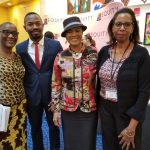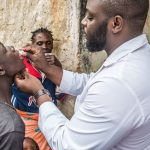CARICOM at the WTO

By Elizabeth Morgan
This year, the World Trade Organization (WTO) marks 25 years since its establishment on 1st January 1995. It will be holding its 12th Ministerial Conference (MC12) in Nur-Sultan, Kazakstan, June 8-11 at a critical point in its short history. Member States of the Caribbean Community (CARICOM) have been members of the WTO since its inception. Today, only the Bahamas is not a WTO member, but is an Observer negotiating its accession. Currently, CARICOM members represented in Geneva are Barbados, Guyana, Haiti, Jamaica, Trinidad and Tobago and a joint Eastern Caribbean (OECS) representation. Other CARICOM members are accredited out of Brussels and London. The CARICOM members endeavor to coordinate their participation at the WTO. The current group coordinator is the Permanent Representative of Trinidad and Tobago.
Alliance-building is important to the CARICOM members in advancing their positions. Thus they also work through the African, Caribbean and Pacific (ACP) group. The WTO is the only multilateral body in which the ACP now functions. From its Summit in Nairobi, this group plans to strengthen its presence in the multilateral arena. The Permanent Representative of Jamaica is currently the ACP Coordinator in Geneva.
Another alliance involving CARICOM members is the Small Vulnerable Economies (SVEs) group which is specifically promoting the interests of small developing country members.
CARICOM Permanent Representatives are actively engaged in the work of the WTO. The current chair of the Agriculture Negotiating Group is the Permanent Representative of Guyana. Over several years, Jamaica was chair of the Special Session on Trade and Development and of the Rules Negotiating Group which deals with issues such as fisheries subsidies. Barbados has been a leader in the SVEs group. The CARICOM representatives, however, require support from the CARICOM Secretariat and their capitals, where stakeholders quite often appear to be steps behind in their understanding of the issues.
It was heartening to read that a CARICOM Workshop on WTO issues was held in Barbados, January 8-10. It seems that the aim was to assist regional officials to better understand the issues and develop positions as preparations for MC12 gather momentum. The Workshop covered WTO reform including the development status of members (special and differential treatment) and dispute settlement, fisheries subsidies, agriculture, electronic commerce (e-commerce), services, investment facilitation, trade facilitation, and medium small & micro enterprises (MSMEs). Recommendations would be presented to Ministers. While the interessional meeting of Heads is scheduled for February in Barbados, the 50th Regular Meeting of the CARICOM Council for Trade and Economic Development (COTED) is not scheduled until April/May. This would mean that a Special COTED Meeting would have to be convened soon or CARICOM will continue to play catch-up as work at the WTO advances. Stakeholders in the region need to be continuously engaged.
The USA and others have led the WTO into a crisis in its 25th year. Although the Organization could be assessed as a disadvantageous arena of operation for CARICOM countries, the situation might have been worse without a rules-based multilateral system and with one in which might only rules. The WTO Director-General, Roberto Azevedo, indicated to a meeting in Uruguay, marking the 25th Anniversary of the end of the GATT Uruguay Round, that the multilateral trading system is the last wall standing before the law of the jungle. For the DG, the major issue facing the WTO leading into MC12, is whether or not it can make progress multilaterally and find innovative ways to inject new energy and momentum into longstanding multilateral issues, as well as address new issues now being deliberated in a plurilateral format such as e-commerce, MSMEs, investment, and empowerment of women. He sees MC 12 as a landmark for all these deliberations.
MC12 could determine whether the WTO is able to survive for another 25 years.
CARICOM might want to critically assess its 25 years in the WTO to determine whether it has benefitted to the fullest extent from its membership and implementation of the Agreements. It also has to ensure that it is prepared and, with its alliances, can make a strong input into the MC12 deliberations.
Submitted by Elizabeth Morgan, Specialist in International Trade Policy and International Politics
Source: CARICOM TODAY

 Previous Post
Previous Post Next Post
Next Post